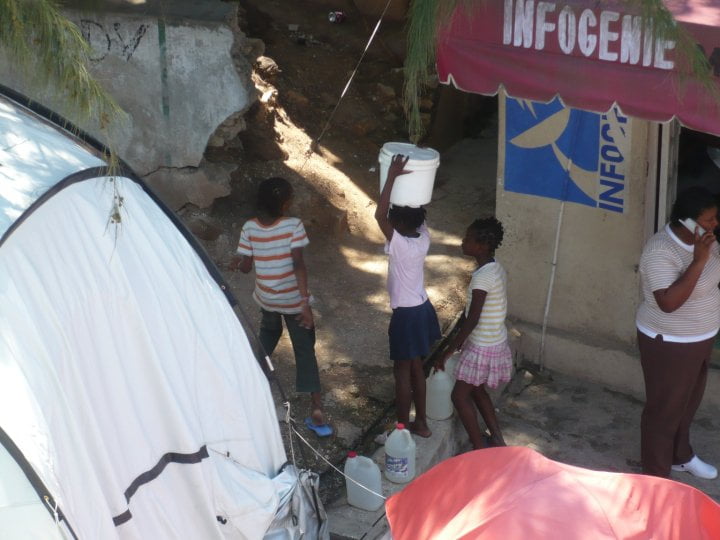Restavèks are mistreated, neglected, and abused emotionally, physically, and sexually in a myriad of ways.
The majority, approximately two-thirds, of restavèk are girls. Girl restavèk are particularly vulnerable to the sexual abuse of males in the host family. In fact, restavèk girls are sometimes called la pou sa, there for that.
Some restavèk, while not suffering from such overt abuse, suffer emotionally from neglect and isolation. Many restavèk also have stunted child development. Since children have little time to play, they often lack imagination and fail to develop personal dreams and goals. It is difficult for many restavèk children to imagine a better and different future.
The Haitian government’s failure to protect children from mistreatment and abuse violates the right to be free from inhumane and degrading treatment as provided for in Article 5 of the UDHR, the right to protection from violence, abuse, and exploitation as outlined in Article 19 of the CRC, and the right to be free from work which harms the health and safety of the child as put forth in Article 3 of ILO Convention 187.
President Jean Bertrand Aristide once explained that the practice of restavèk is “so ingrained in Haiti that too many people do not even know they are breaking the law.”
